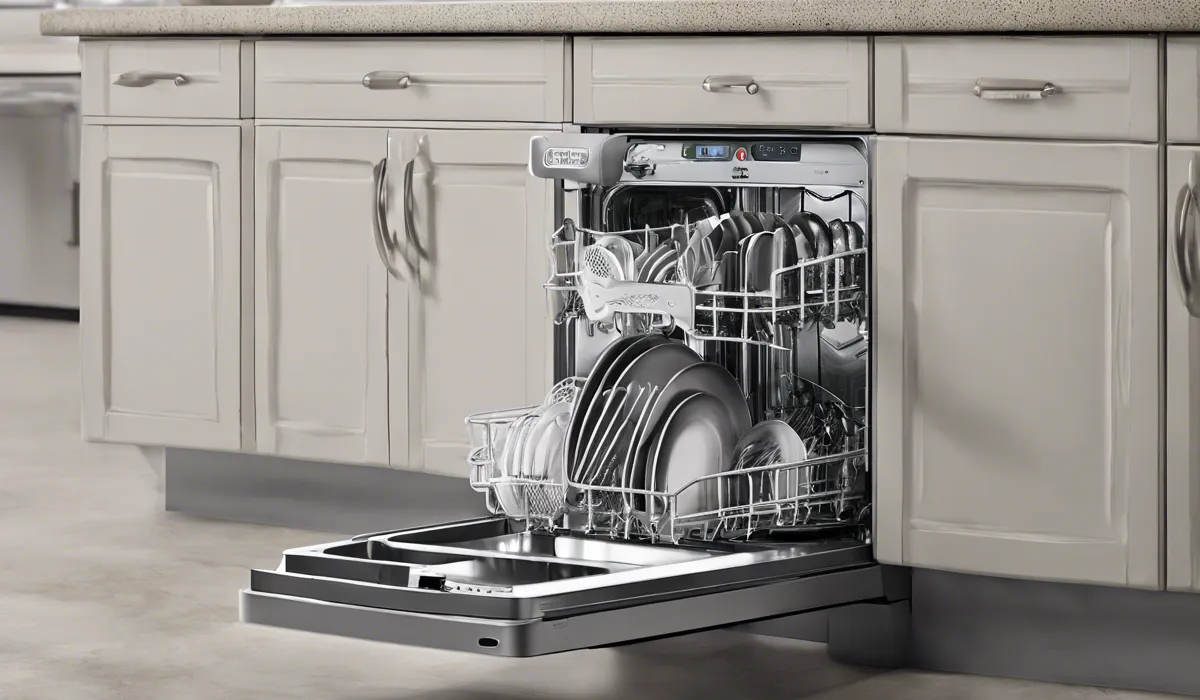Do Dishwashers Kill Viruses? Sterilizing Truth Revealed!
Dishwashers can kill viruses using high heat, typically over 145°F, during the washing cycle. The combination of hot water and detergent also helps to remove and deactivate many viruses. However, effectiveness varies based on the virus type and dishwasher model. Ensure dishes are dishwasher-safe for proper sanitation.
Dishwasher Efficacy Against Viruses

Understanding How Dishwashers Work
Dishwashers are modern conveniences that clean by spraying hot water and detergent onto dishes. They have cycles that may include rinsing, washing, and drying.
During a cycle, the dishwasher heats water to a specific temperature, which aids in sanitizing dishes and utensils. The combination of water pressure and temperature ensures that food debris and microorganisms are removed effectively.
Types of Dishwashers and Cleaning Mechanisms
There are various types of dishwashers, including built-in, portable, and drawer dishwashers. Built-in models are the most common and are permanently installed in the kitchen.
Portable dishwashers can be moved around and connected to a faucet. Drawer dishwashers come in single or double-drawer configurations.
Each type has specific cleaning mechanisms, such as rotating spray arms or individual water jets, to ensure thorough cleaning.
Temperature Ranges in Dishwashers
Dishwashers typically operate at temperatures ranging from 130°F to 170°F. The higher temperatures are more effective in killing bacteria and viruses.
Some models have a sanitizing cycle that uses even hotter water to ensure a higher level of disinfection.
The Role of Detergents and Sanitizing Agents
Detergents play a crucial role in the cleaning process, breaking down food particles and grease.
Sanitizing agents, which can be found in some dishwasher detergents or as separate additives, are designed to kill bacteria and viruses on surfaces.
The combination of heat, detergent, and sanitizers can effectively kill many types of viruses.
Factors Affecting the Killing of Viruses
The effectiveness of a dishwasher in killing viruses depends on several factors, including the temperature of the water, the type of detergent used, and the duration of the wash cycle.
The right combination of these elements is critical to ensuring that viruses are effectively removed or deactivated.
Studies and Guidelines on Dishwasher Effectiveness

Research on Dishwashers’ Ability to Kill Viruses
Studies have shown that dishwashers can kill viruses, particularly when they operate at the higher temperature ranges.
The heat, combined with the mechanical action of the water and the chemistry of the detergents, creates an environment that is hostile to viruses.
Guidelines from Health Organizations
Organizations like the Centers for Disease Control and Prevention (CDC) provide guidelines on the necessary conditions for sanitization and disinfection.
While they do not always provide specific advice for dishwashers, following their general guidelines on temperatures for killing pathogens can be applied to the use of household dishwashers.
Survival Rate of Common Viruses in Dishwashing Conditions
Viruses like norovirus and influenza have different survival rates under dishwashing conditions.
Generally, enveloped viruses like influenza are more susceptible to the heat and detergents used in dishwashers, while non-enveloped viruses like norovirus require higher temperatures and stronger detergents to be effectively inactivated.
Best Practices for Using Dishwashers to Kill Viruses

Recommended Settings and Cycles
To maximize the virus-killing potential of your dishwasher, use the hottest water settings and a sanitizing cycle if available. Ensure that your dishwasher reaches a minimum temperature of 145°F to effectively kill viruses.
Tips for Loading Dishes
Load dishes according to the manufacturer’s instructions to ensure that water and detergent reach all surfaces. Avoid overcrowding, as it can prevent the proper cleaning and sanitization of each item.
Importance of Dishwasher Maintenance
Regularly clean and maintain your dishwasher to ensure its effectiveness. Check and clean the filters, spray arms, and seals to keep the appliance in optimal condition.
Additional Hygiene Steps
Besides using a dishwasher, incorporate additional hygiene practices such as handwashing dishes before placing them in the machine and using disinfectants on kitchen surfaces to maintain a hygienic environment.
FAQs About Dishwashers and Viruses
Do dishwashers kill viruses?
Yes, dishwashers can kill viruses using high heat, typically over 145°F, along with detergent during the washing cycle.
Are all viruses eliminated by a dishwasher?
The effectiveness of a dishwasher in killing viruses varies based on the virus type and the specific dishwasher model.
What temperature should my dishwasher reach to deactivate viruses?
Your dishwasher should reach temperatures over 145°F during the washing cycle to effectively deactivate many viruses.
Is detergent necessary for a dishwasher to kill viruses?
Yes, the combination of hot water and detergent is important for removing and deactivating many viruses in a dishwasher.
How do I know if my dishes are sanitized properly in the dishwasher?
Ensure that your dishes are dishwasher-safe and that your dishwasher is functioning at the correct temperature, as per the manufacturer’s instructions, for proper sanitation.
Final Thoughts
Dishwashers, utilizing high heat above 145°F and detergents, can effectively kill many viruses. The sanitation efficacy, though, differs by virus type and dishwasher model.
Users should verify that their dishes are designed for dishwasher use to ensure proper deactivation of viruses.





